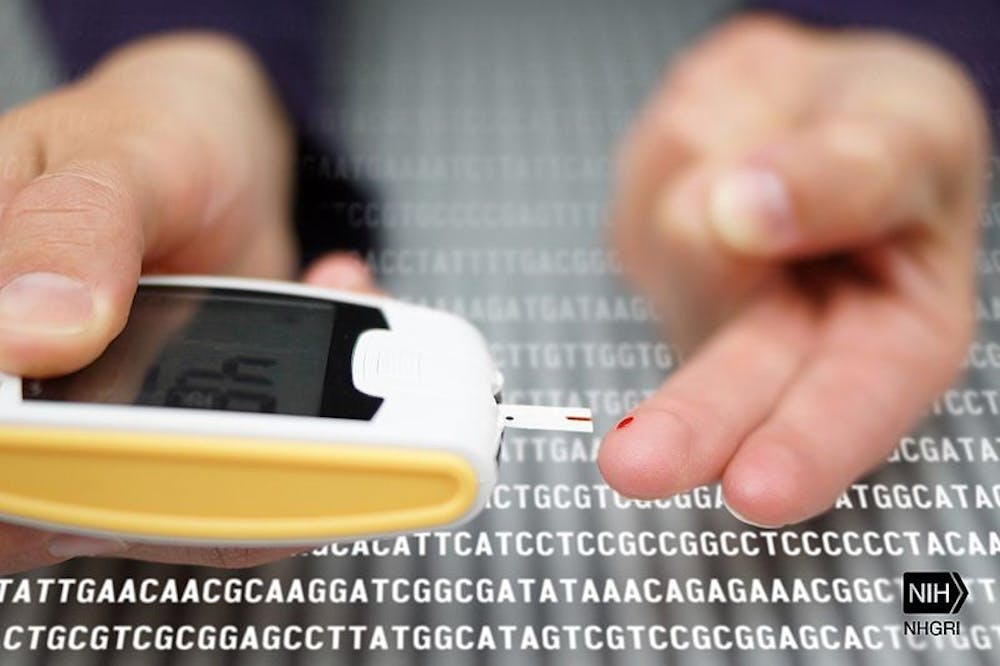Algorithms are steadily finding their way into health care. The influence of personal technologies and the implementation of computing systems to support a patient-oriented approach to their health was the topic of Maia Jacobs’ talk on Feb. 4 titled “One Size Doesn’t Fit Anyone: Tailoring Digital Tools for Personal Health Journeys.”
Jacobs, a postdoctoral fellow at Harvard University’s Center for Research on Computation and Society, discussed her different research projects aimed at finding solutions to redesign personal informational technologies to transform health care, particularly in chronic disease management.
With the discovery of penicillin and public health efforts like water sanitation, life expectancy rose to 78 years in the United States. Consequently, an increase in life expectancy corresponded to a substantial increase in the frequency of chronic diseases.
According to the National Center for Chronic Disease Prevention and Health Promotion, the U.S. government allocates 90 percent of its $3.5 trillion health-care costs to chronic disease management.
Since chronic disease presents emotional, physical and logistical burdens for patients, Jacobs highlighted the necessity of employing ubiquitous computing systems to scale patients’ access to critical health-care information and to adapt tools to meet patients’ changing personal needs.
Jacobs was methodical as she researched patients’ engagement in their health care. First, she noted that understanding the sociotechnical systems in which technology is invented is crucial to assess the strengths and weaknesses of each health care system and survey patient experiences.
Additionally, she observed that user-oriented design can illuminate the ways in which technological solutions can augment the existing strengths of health care institutions.
Jacobs used longitudinal field evaluations to examine how patients adapt to computing systems over time. She also developed computational techniques for users.
“I do not really focus on inventing new [artificial intelligence] techniques, but rather on understanding how we make these tools sufficient and robust to work in really complex environments,” she said.
Jacobs spoke extensively about her MyPath project, in which she collaborated with oncologists in Georgia to understand a newly developed patient portal for cancer patients. Jacobs analyzed existing care processes, including the organization Cancer Navigators, which supports the cancer treatments of patients. Jacobs also worked alongside cancer survivors to better understand the difficulties of adjusting to lifestyle changes and transitioning between therapies.
Her preliminary research discovered the prevalence of a “loneliness gap” affecting patients who were uncomfortable with disclosing their health issues to clinicians. Jacobs also found that when cancer patients were given computer tablets, the most downloaded application was Angry Birds, which suggests that patients seek to relieve stress during chemotherapy.
“We need to recognize what the cancer journey is for each individual and develop coaching around that,” she said.
Jacobs designed MyPath to enhance a patient’s engagement in their health. MyPath provides comprehensive information to support diverse patient experiences and adapts resource recommendations to reflect the change in a user’s needs and values over time.
By allowing users to input information about current questions or challenges, MyPath fosters a comfortable environment for patients to connect with fellow patients and to have their questions answered promptly.
After a two-year deployment, MyPath boasts a 90 percent retention rate after 30 days. Seventy-five percent of patients used the system after radiation or chemotherapy.
However, this technological solution has faced criticism from users who find themselves conflicted by discrepancies in treatment prescribed by different doctors and recommendations on MyPath.
Jacobs responded to this criticism by emphasizing that MyPath is solely based on data and that there are issues in knowledge management that produce inaccurate results.
In an interview with The News-Letter following her talk, Jacobs described the challenges of her research and implementing technological solutions.
“I build tools that people will use in their daily lives,” she said. “Which means developing technologies that are useful and usable and actually work.”
Following her presentation of her MyPath project, Jacobs discussed her research in heterogeneous trajectories for neurodegenerative diseases, such as Parkinson’s disease.
Jacobs explained that due to the different progressions of neurodegenerative diseases, there are highly variable trajectories between patients of this cohort of diseases. She further conceded that the critical life adjustments accompanying these diseases necessitate the development of a framework to conceptualize the transitions, resources and barriers people are tasked with.
Jacobs emphasized the importance of peer networks, especially online health communities, to prepare patients to adapt to the lifestyle changes accompanying neurodegenerative disease. She also discussed her plans to generate a national survey to study how transitions, coping strategies and barriers differ among populations.
Jacobs also discussed her research in the integration of machine learning into clinical workflows, specifically in the pharmacologic management of major depressive disorder (MDD). Her research involves studying how machine learning algorithms influence the decision-making process of clinicians.
“I am excited about human and AI collaboration in clinical settings and the implementation of tools in very busy settings for patients and doctors,” she said in her interview with The News-Letter.
Jacobs plans to continue to address health care and information disparities, design technological innovations for uncertain futures and implement machine learning insights into the decision-making process of clinicians.
For Jacobs, however, the greatest reward of her research is her impact in bringing attention to issues of personalized health care.
“If I could just do something to help one person, I’d be happy with that,” she said. “The biggest reward of my research is getting to talk to [patients] about their experiences, work with them to build a technology they want, and better understand [technology’s] influence.”





